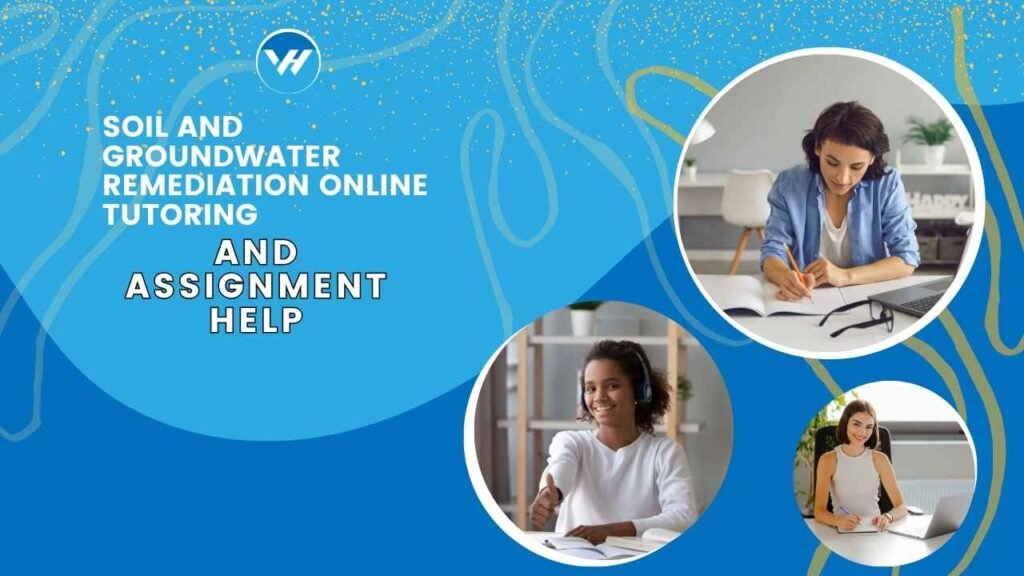Soil and groundwater remediation refers to the processes used to clean up contaminated soil and water resources. This is crucial for maintaining environmental health and ensuring the safety of water supplies. Think of it as giving our environment a much-needed detox, eliminating pollutants that can cause harm to ecosystems and human health.

Table of Contents
ToggleImportance of Soil and Groundwater Remediation
The importance of soil and groundwater remediation cannot be overstated. Contaminants in soil and water can lead to serious health issues, including cancer and other chronic diseases. Moreover, polluted environments can affect agriculture, wildlife, and even property values. Remediation helps restore natural habitats and ensures that resources are safe for future generations.
Understanding Soil and Groundwater Contamination
Types of Contaminants
Contaminants in soil and groundwater can be broadly categorized into two types: chemical and biological.
Chemical Contaminants
These include pesticides, heavy metals like lead and mercury, and industrial chemicals. They often result from improper disposal or accidental spills and can persist in the environment for years.
Biological Contaminants
Biological contaminants include bacteria, viruses, and fungi. These are typically introduced through agricultural runoff, wastewater, or improper waste disposal.
Sources of Contamination
Industrial Activities
Industries can be significant sources of contamination due to the disposal of hazardous waste, leaks, and spills. Factories, mining operations, and chemical plants are common culprits.
Agricultural Practices
Agriculture contributes to soil and groundwater contamination through the use of pesticides, herbicides, and fertilizers. These chemicals can leach into the soil and eventually into groundwater.
Techniques for Soil and Groundwater Remediation
Physical Methods
Excavation and Disposal
This involves digging up contaminated soil and transporting it to a disposal site. While effective, it’s often costly and disruptive.
Soil Washing
Soil washing uses water and chemicals to remove contaminants from soil. It’s a practical option for treating large volumes of soil.
Chemical Methods
Chemical Oxidation
Chemical oxidation involves applying chemicals that react with contaminants to break them down into less harmful substances. This method is useful for treating groundwater.
Bioremediation
Bioremediation uses microorganisms to degrade contaminants. It’s an eco-friendly approach that can be applied to both soil and groundwater.
Biological Methods
Phytoremediation
Phytoremediation uses plants to absorb or degrade contaminants. Certain plants can take up heavy metals or organic pollutants from the soil and water.
Microbial Remediation
Microbial remediation involves using microbes to break down pollutants. This method can be tailored to specific types of contamination and is often used in conjunction with other techniques.
Challenges in Soil and Groundwater Remediation
Technical Challenges
Remediation can be technically challenging due to the complexity of contaminants and the variability in soil and groundwater conditions. Accurate assessment and monitoring are essential.
Economic and Regulatory Challenges
The costs associated with remediation can be high, and navigating the regulatory landscape can be complex. Compliance with environmental regulations is crucial to avoid legal issues.
How Online Tutoring Can Help
Benefits of Online Tutoring for Soil and Groundwater Remediation
Flexibility and Convenience
Online tutoring offers flexibility in scheduling and location, allowing students to learn at their own pace and from anywhere. This is especially useful for complex subjects like soil and groundwater remediation.
Access to Expert Tutors
Online platforms connect students with experts who can provide personalized guidance. This expertise can help students understand challenging concepts and apply them effectively.
Platforms Offering Online Tutoring
Features of Effective Tutoring Platforms
Effective tutoring platforms offer interactive features like virtual labs, real-time feedback, and access to a variety of learning resources. They also provide a user-friendly interface that facilitates communication between students and tutors.
Virtual Help: Your Solution for Assignment Help
Virtual Help is a leading platform for finding tutors and getting assignment help. With its iOS and Android apps, students can easily connect with qualified tutors for personalized assistance in soil and groundwater remediation.
Tips for Effective Online Tutoring and Assignment Help
Choosing the Right Tutor
Look for tutors with relevant experience and qualifications in soil and groundwater remediation. A good tutor should be able to explain complex concepts in a clear and understandable manner.
Preparing for Tutoring Sessions
Before your tutoring session, review your course materials and list any specific questions or areas where you need help. Being prepared will make the most of your tutoring time.
Conclusion
Soil and groundwater remediation is vital for protecting our environment and health. Understanding contamination sources, remediation techniques, and leveraging online tutoring can significantly enhance learning and application of these complex topics.
Online tutoring provides an accessible and effective way to master soil and groundwater remediation. With platforms like Virtual Help, students can receive expert guidance and support tailored to their needs.
FAQs
What is the cost of online tutoring for soil and groundwater remediation?
Costs vary depending on the platform and tutor. Many online tutoring services offer flexible pricing options and packages.
How can I find a qualified tutor for remediation?
Look for tutors with relevant academic and professional backgrounds in soil and groundwater remediation. Platforms like Virtual Help can connect you with qualified experts.
What are the benefits of using Virtual Help for assignment help?
Virtual Help offers a user-friendly platform to find experienced tutors, access various learning resources, and receive personalized support for your assignments.
How do I prepare for an online tutoring session?
Review your course materials, prepare specific questions, and ensure you have a stable internet connection. Being organized will help you make the most of your tutoring session.
Can online tutoring help with complex remediation projects?
Yes, online tutoring can provide personalized assistance with complex projects, offering expert guidance and resources to help you understand and complete your assignments.





